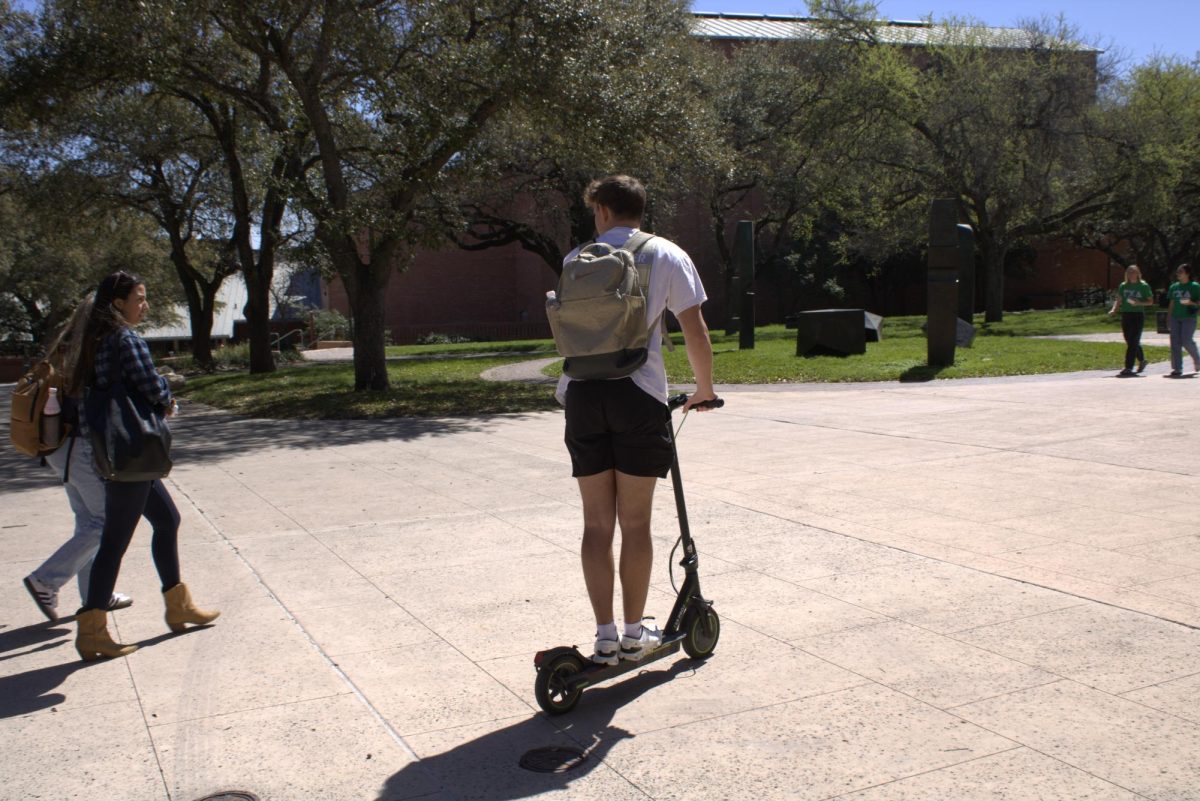TUPD publishes daily crime reports, which are compacted into a weekly report in the Trinitonian. All reported crimes on Trinity property are included in these reports, and in recent weeks there have been notably fewer than usual.
TUPD has reported only two crimes in the past two weeks. Paul Chapa, TUPD chief, and Darin Wilde, TUPD lieutenant, clarified the department’s behind-the-scenes process.
In general, according to Wilde, there are two categories of crimes. The first involves “people crimes,” including assaults and terroristic threats. Secondly, property crimes are those of theft, burglary, etc. The published reports refrain from specific information and are categorized by the Texas Penal Code.
“As the police department here, we don’t define what the crime is, we see if it meets the elements established by the state of Texas,” Wilde said.
According to Wilde and Chapa, a police officer will meet with the victim or complainant when a crime is first reported. This preliminary brief allows the police department to establish the basic facts: who, what, when, where and why. From this basic inquiry, the department will take the necessary steps to classify the crime, investigate and offer resources to those involved. The crimes reported follow a broad range from a lost phone to cases of assault.
Wilde and Chapa noted that, while they maintain standard policies in every case, TUPD takes unique approaches to individual crimes. For instance, in the case of a stolen bike, TUPD may help by providing a U-lock to prevent further theft and even provide an extra bike, if available.
“Students should never fear calling us because we are going to jump start your car. We are going to give you an escort to the library or back. We are going to give you a bag of popcorn at the many events we have. We are going to engage with you. We are going to support you. We are going to be part of your experience here at Trinity,” Chapa said.
Chapa attributed the change in crime rates to the efforts of his team, stating that TUPD uses two key methods to ensure success: transparency and engagement. He said that TUPD primarily seeks to form a culture of transparency. TUPD has established two accreditations of almost 13 years from the Texas Police Chiefs Association and the International Association of Campus Law Enforcement Administrators. Each year, the department must conduct an annual assessment of policies and procedures to maintain their accreditations.
Students have noticed efforts by TUPD at community engagement through participation in campus events. Allison Tirado, senior neuroscience major, commented on the Police Copcorn events on campus.
“I think that it does establish community engagement, and it helps people actually know those who are supposed to be on the campus police,” Tirado said.
She mentioned that the events are not personally appealing, so her interactions with TUPD mainly fall outside of these events. However, Tirado has interacted with other students who enjoy the experience.
“It is kind of nice that they are trying to engage with the community, since they are the ones that are the campus police,” Tirado said.
Chapa stressed that TUPD is meant to be part of the solution, not simply punitive. Their primary goal is to ensure campus safety. Wilde specifically asked that students download the safety app “See Say” and sign up for the TrinALERT.
“The ‘see something, say something’ is critical because there’s a lot more students, faculty and staff than there are police officers. And with the community being the eyes and the ears, sometimes they see something before we do and we can’t necessarily respond or react unless we are aware of it,” Wilde said. “So if you see something that doesn’t look right, if you see something that doesn’t feel right, say something.”







